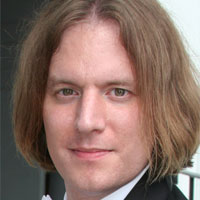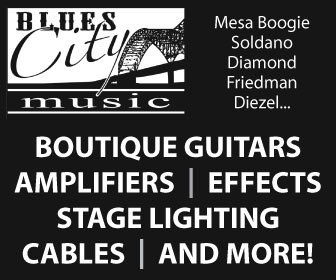Billy J. Kramer
Memories Of The British Invasion, The Beatles And Abbey Road
Forty years ago, four lads from Liverpool ushered in a period of music knows as the British Invasion, an era from the mid-to-late-1960s when the blues-influenced sounds of British rock and roll bands swept across the American cultural landscape. The influence of the Beatles and their fellow conquerors created some of the most memorable and distinctive musical sounds and changed the very definition of the rock band (guitar, bass, drums), brought songwriters to the forefront, and ushered in the change from basic four-track recording techniques to elaborate studios and multi-track stereo.
One of the overnight superstars whose music blasted from radios around the country, and live performances on television were drowned out by screaming fans, was Billy J. Kramer, a friend and musical soul mate of John, Paul, George and Ringo.
Born William Ashton in Liverpool, England, Kramer performed around the area's club scene, taking the stage name Billy Kramer at random from a local telephone directory (the "J." was added later at the prompting of John Lennon). He caught the eyes and ears of Brian Epstein, the Beatles' manager, who signed Kramer and put him together with a backing group, The Dakotas.
Kramer's career took off with a succession of international million-selling hits penned for him by Lennon/McCartney, including "I'll Keep You Satisfied", "From A Window", "I Call Your Name" and "Bad To Me". Billy J. Kramer and the Dakotas even knocked the Beatles off the #1 spot on the British pop charts with their first hit, Lennon's "Do You Want To Know A Secret, " written for Kramer in the toilet, which was the only place Lennon could find some peace and quiet.
He continued his chain of hits with a tune written by two American songwriters, Mort Schuman and John Leslie McFarland, called "Little Children," which would become his biggest-selling worldwide hit.
Now living in Long Island, New York, Kramer continues to perform a regular schedule of shows around the country, including "British Invasion" concerts.
On February 6th, Kramer will headline "The Fab 40: 40 Years of the Music and Magic of the Beatles" at the Brookdale Performing Arts Center (PAC) in Lincroft, New Jersey. Backing Kramer for the evening, and providing the opening set, will be the Freehold, New Jersey-based band, The Cryers, who are also producing the event.
Chorus and Verse spoke with Kramer about his career, his friend Brian Epstein, and his memories of those crazy and historic days when the music of long-haired boys in mod suits changed the world.
Your upcoming show at the Brookdale PAC on February 6 is in celebration of the 40th Anniversary of the Beatles' invasion of America. Where were you at that time in 1964 and what do you remember about those events? When did you realize that their tour of America was turning into a phenomenon?
I was on tour in England at the time. Having had the pleasure of touring with the Beatles shortly before their tour of America, I was sure the response would be similar to the response they were receiving in England, only on a much larger scale. I was really thrilled for them, but certainly not surprised. I always thought from the first time that I saw them that they would become a world-wide phenomenon.
Early in your career, you were performing in rock clubs around Liverpool and eventually signed by Brian Epstein. When did you first meet Brian, what was it like working with him and how important do you feel his role was in the start of the British Invasion?
Regarding Brian Epstein, there would have been no British Invasion without him. I was introduced to Brian at a Merseybeat Poll Winners Contest in which I came in third. I was the highest-placed non-professional entertainer. Brian gave away a prize of a tour of Scotland which I had to decline because of my day job with British Rail. Can you imagine that? That was my first meeting with him.
Shortly thereafter, he summoned me to his office and offered to manage me. Of course, I immediately packed in my job with British Rail, and the rest is history. I feel that Brian saw the Beatles and had the vision that they could be very successful. He pounded the pavement all over London for them and his other artists. When some record people couldn't see the potential, he never gave up. Brian brought The Beatles and all his other artists to the world.
I am totally amazed that the man who put British rock and roll on the map is not in the Rock and Roll Hall Of Fame and is never given the credit that he deserves. I could go on about the subject of Brian all night. I miss him both professionally and personally every day.
What are your memories of the Liverpool scene before it was discovered by the rest of the world? Can you recall some of the clubs you enjoyed playing at the time, and when you first started out there was there any thought that anyone performing around Liverpool could become famous?
I played at The Cavern, The Iron Door, Litherland Town Hall, Aintree Institute, Blair Hall, The Tower Ballroom New Brighton just to name a few. Liverpool was buzzing at the time. There were lots of places to play and the audiences were very enthusiastic. I always had the feeling that something special was going to happen. I am not a clairvoyant, but it obviously did happen.
When did you have your first opportunity to visit and perform in America? What was the mood surrounding those early tours of States, and did you have much of an opportunity to see any of the cities you were visiting at the time?
I actually came to New York with Brian on a promotional tour before the Beatles ever came here. It was larger than life, and even though it was intimidating for a boy from Liverpool who only a few months earlier was working for British Rail, I loved it. I toured the U.S. in 1964 and, needless to say, it was mayhem with all the screaming fans. I did get a chance to go up to the top of the Empire State Building during that time, but most of the time, we were traveling or stuck in our rooms because of security concerns.
You performed on the classic 1960s American television programs "Shindig!," "Hullabaloo" and "The Ed Sullivan Show." Talk about your Ed Sullivan appearance a bit. How was he to work with, and what was the routine like when getting ready for the show and finally getting on stage?
I enjoyed doing the Ed Sullivan show immensely. I didn't know the magnitude of the audience that I was playing to, otherwise I might have been too nervous and gone home. I didn't speak to Ed much, but thought he had a great show. Funny enough, I have recently become re-acquainted with the man who was actually responsible for booking me onto Ed Sullivan and we have become great friends.
Several of your early smash hits were written for you by Lennon/McCartney. After being signed by Brian Epstein, how did Lennon/McCartney start writing music for you, and why you do feel they, especially John, enjoyed doing so?
John and Paul came to Abbey Road Studios while I was recording there and played the songs on the piano for me. John played "Bad To Me" to me and I was immediately convinced that it was a hit.
Funny enough, after he played it, he asked me if I would mind giving him my opinion on another song that he had written. He then played "I Want To Hold Your Hand" to me, and my response was "can I have that one instead," to which he promptly replied, "sorry Billy, we are doing that one ourselves".
I think they enjoyed writing for me because I had opened shows for them around Liverpool and we became good friends and they wanted to see me succeed. It was John who suggested that I call myself Billy J. as I was known around Liverpool as just Billy Kramer and he suggested that I had the J. to give it a more commercial ring.
Were there any songs they gave you to do that just didn't work? How involved were they in walking through the recording, and working out how the song should sound? Did you get the feeling that they enjoyed hearing their music performed and took pride in how it sounded?
John and Paul did play me some songs that I didn't feel were right for me and they quite understood that. They took a great deal of interest in the recording process and had a great deal of input.
In addition to having songs written by the Beatles, you were produced by George Martin and recorded at Abbey Road Studios. What was the effect that Martin had on your music, and what were the qualities he possessed that made him valuable to you as a musician? Are there any memories that you have about recording at Abbey Road that stand out in your mind?
George Martin had a knack for re-arranging songs if need be and always finding better-sounding chords for the band. He had a lot of patience with me as I was just getting used to being in a studio and would sometimes need a lot of takes.
My fondest memories of recording at Abbey Road are the recordings of "Bad To Me" and "Little Children" because "Bad To Me" turned out better than my wildest expectations and "Little Children" was a song that I had found myself which was written by two American songwriters. Nobody seemed to like the song, but I came up with what I thought was a great arrangement and it obviously worked out.
Speaking of Abbey Road, you've released a CD, "Billy J. Kramer and The Dakotas at Abbey Road Studios 1963 to 1966," 28 tracks of hits, b-sides and rare tracks. Where were the masters for these tracks found, and how much re-engineering was done to prepare them for this record? Did it bring back a lot of fond memories to work on putting this album together?
Unfortunately, I actually had nothing to do with putting the Abbey Road series CD together. EMI put it together. I think that was a brilliant idea to put out a series of CD's of those of us who recorded at Abbey Road and they did a great job.
One of songs you'll be performing at Brookdale is "I'm In Love," a Lennon/McCartney tune that you never recorded or released. What's the story behind "I'm In Love," and why was it never officially recorded? In all, how many Lennon/McCartney songs are part of your set?
"I'm In Love" was a song that John and Paul brought down to a session at Abbey Road. The band and I had been recording and were about to finish for the day when they played this song for me. We quickly learned the song and did record it, but didn't have the time to finish it.
Honestly, I had forgotten about it until a few years ago when EMI America released it as part of "The Best Of Billy J. Kramer". A fellow named Ron Furmanek, who is a pop music historian, found the recording in the vaults of EMI and edited two of the takes that we had done into one. It was strange to hear it after all these years, especially hearing John shouting directions to me in the studio. I once again realized what a fabulous song it was and I started performing it on my shows a few years ago and everyone seem to love it.
At this show at Brookdale, I will be doing nothing else but Beatle-written songs including "Handle Me With Care" as a tribute to George Harrison. I am really looking forward to the show, as I am eternally grateful for all the help they gave me in my career.
You're still performing about a show a month throughout the year. It is still fun for you to perform for fans and meet them after the shows? Do you find that fans like to share memories from past shows or other appearances where they've seen you?
I still love to perform and, believe it or not, some of the audience members are actually young people who come with their parents since the '60s was an unbelievable period in music that has lasted all this time. Sometimes I see fans that have followed me for many years. It's always nice to stop and have a chat.
It seems so civilized now, not like the old days, but I have enjoyed it all.
[ Website: www.billyjkramer.com ]

Matt Mrowicki founded Chorus and Verse in 2001. He is a rock star designer and technologist, Internet professional, content creator, and entrepreneur specializing in web development, IT consulting, branding, social media and online marketing. www.imprtech.com









